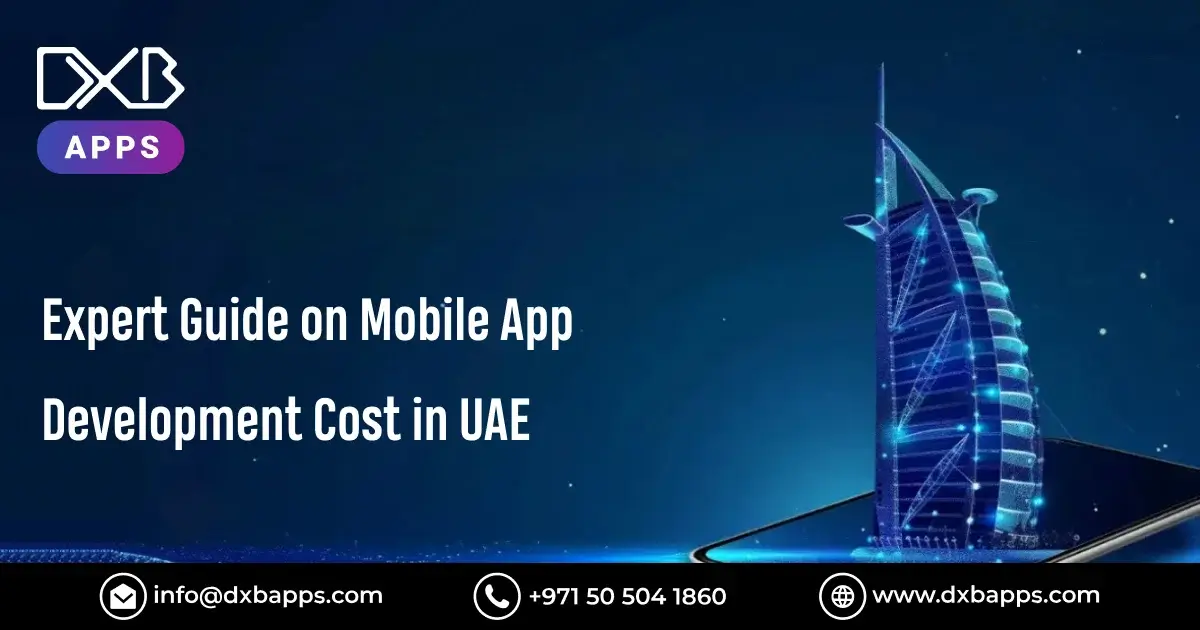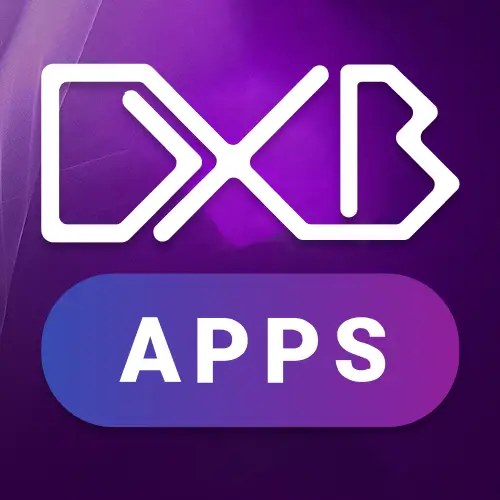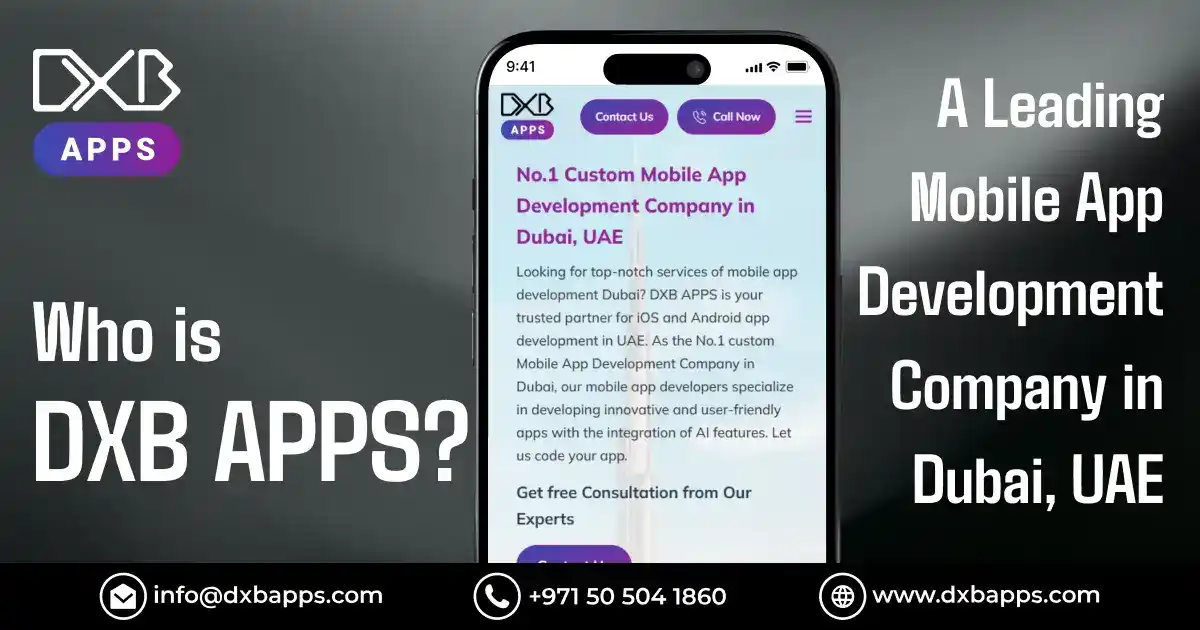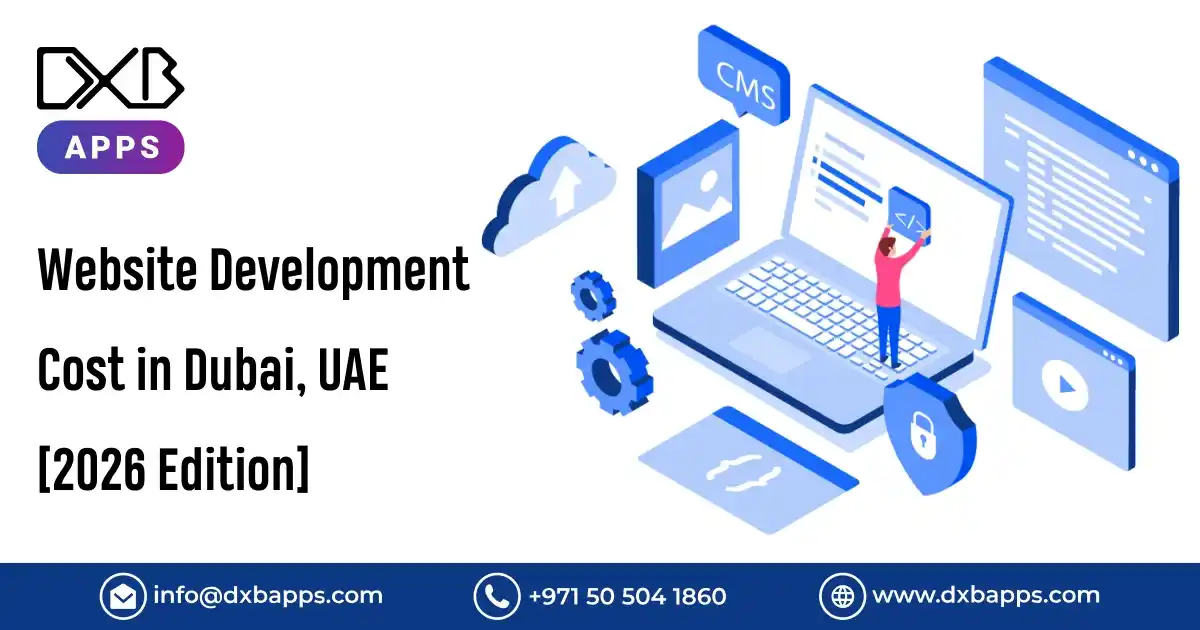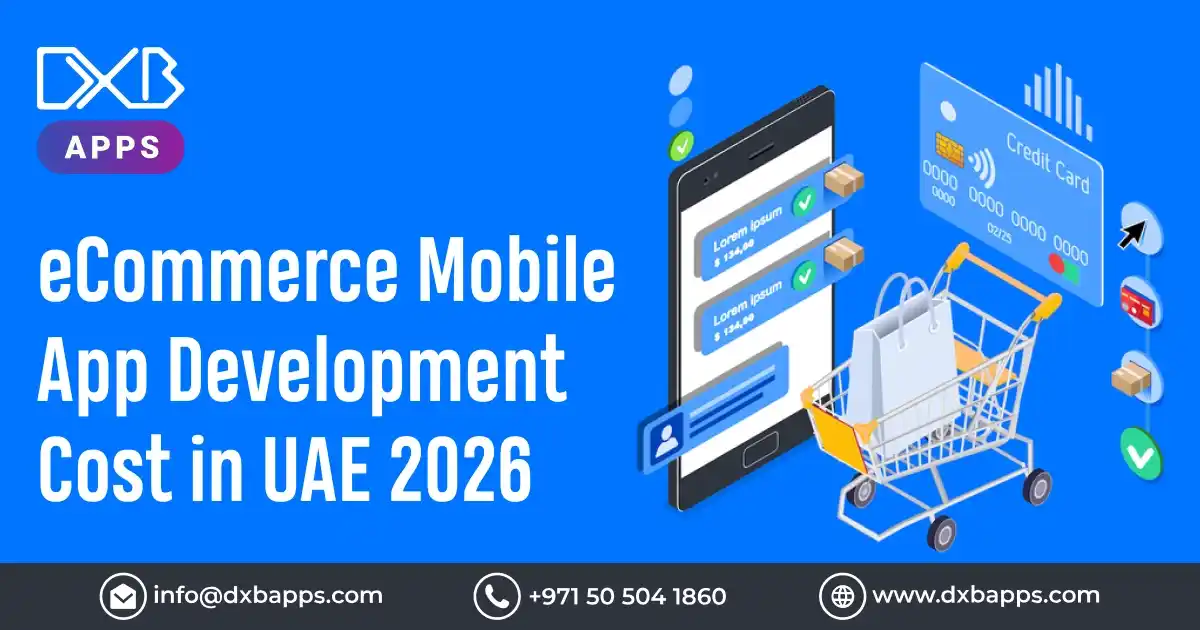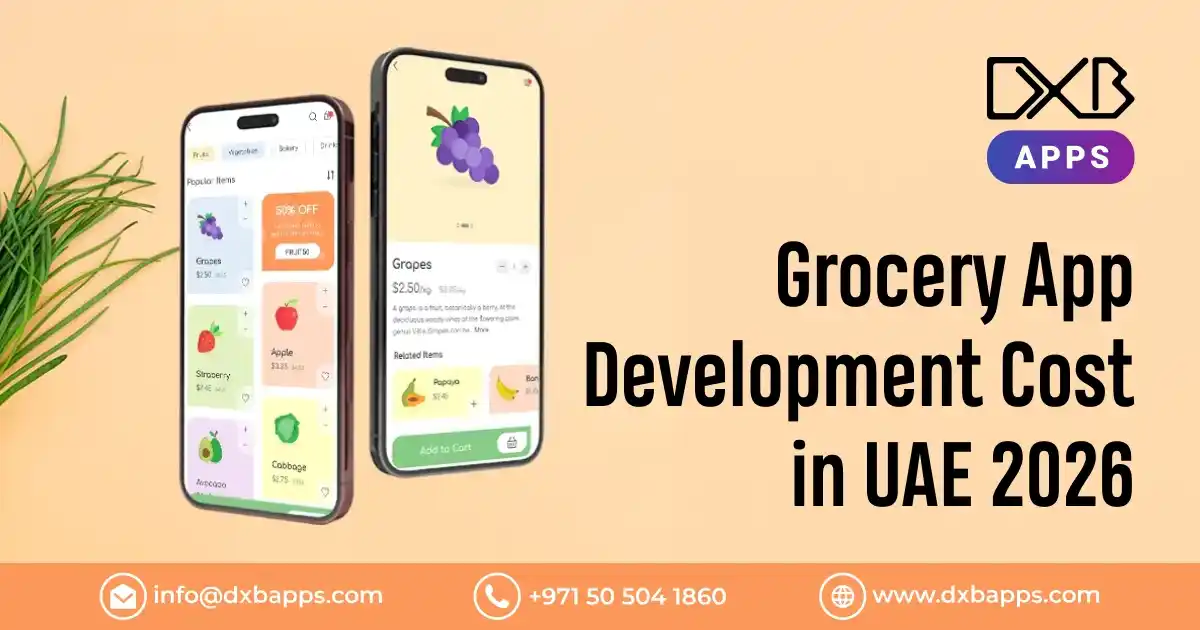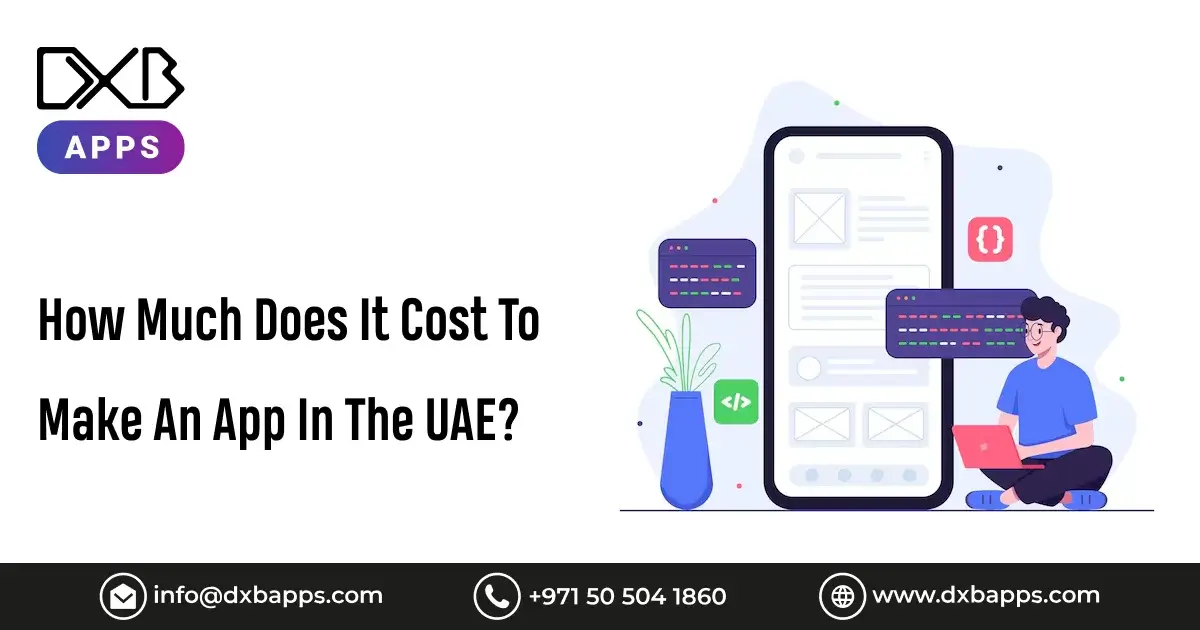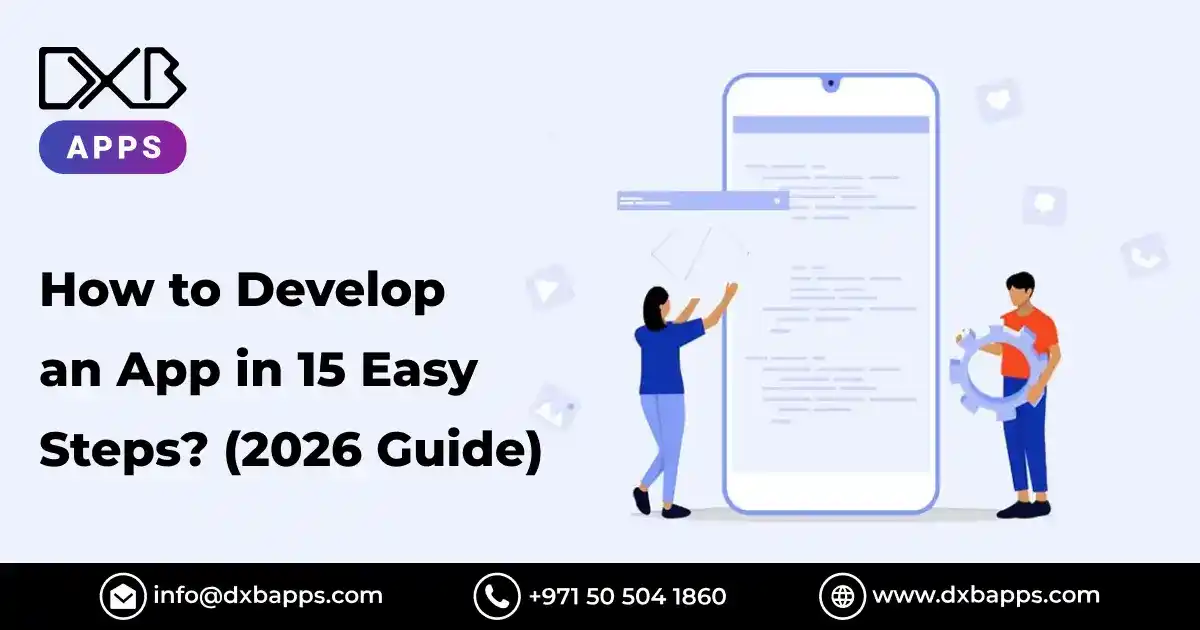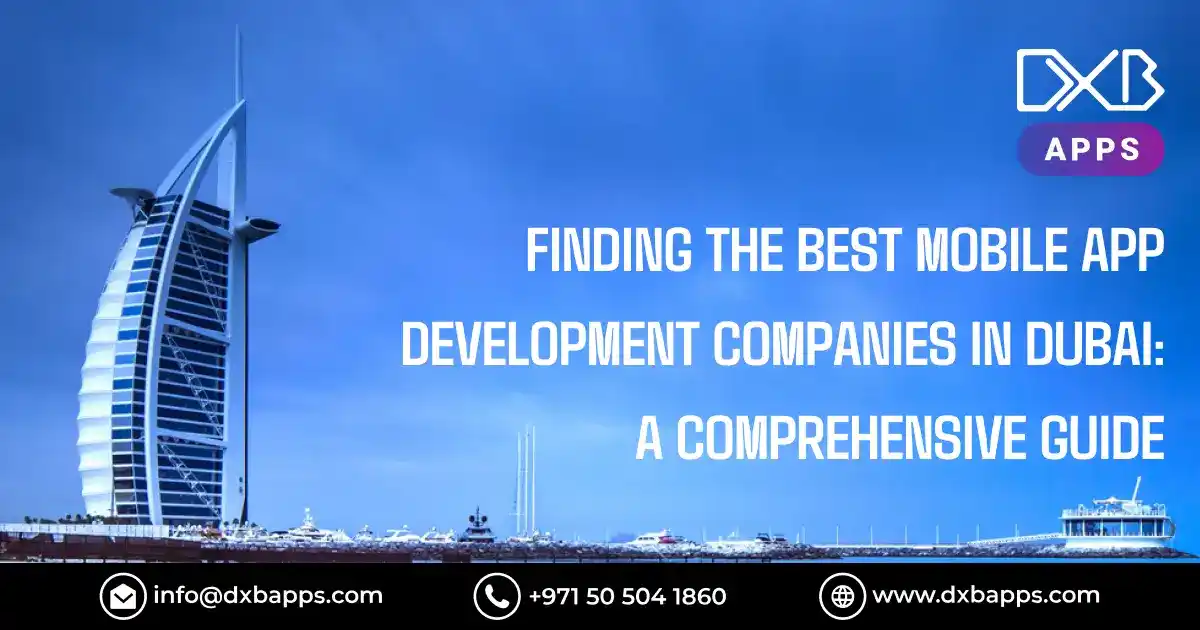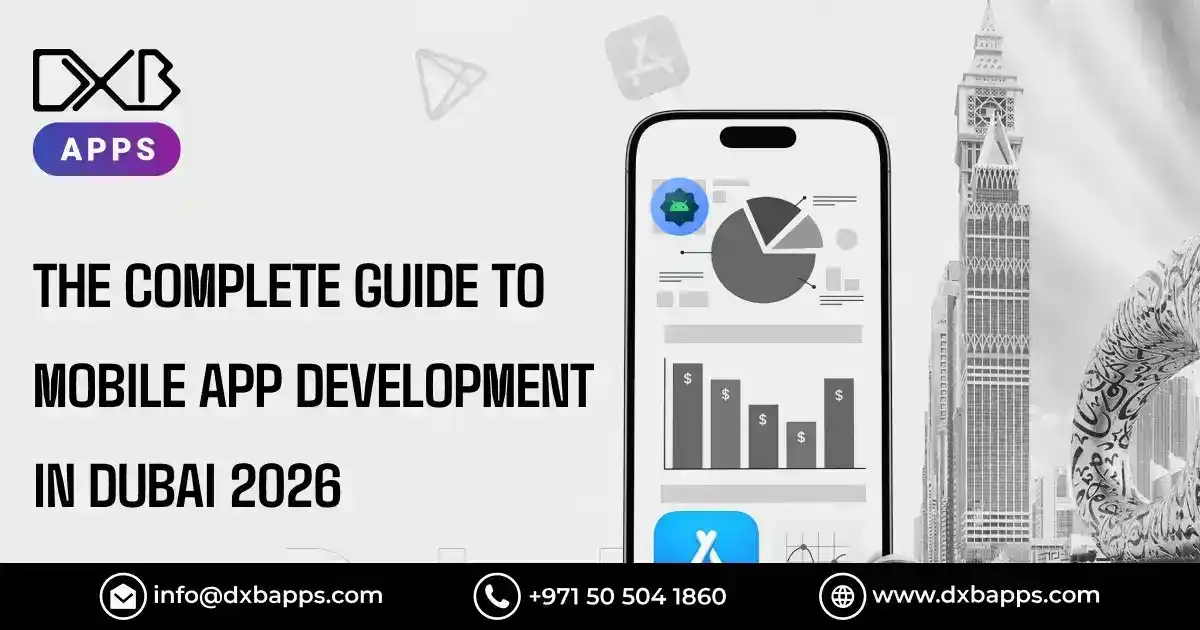By 2025, mobile applications will no longer be a nicety. They're essential. UAE businesses adopt mobile applications because they aim to create better customer experiences and enhance operational efficiency and loyalty, while their customers continue to utilize advanced smartphones with a high level of technological knowledge. The business environment requires mobile applications to capture notice and function as essential tools for business success, serving companies of all sizes in the current digital age.
With the demand for new uses, the mobile app development cost in UAE increases. This ultimate guide provides a general estimate of mobile app development cost, key considerations to remember, and expert tips for creating high-quality apps without exceeding your budget.

Overview of Mobile App Development Cost
The app price in the UAE depends on several factors, including application complexity, design, features, development platform, and a professional development team. Mobile application development expenses in the UAE usually span from AED 40,000 to AED 1,100,000, which corresponds to $10,000–$300,000 and beyond.
Following is an approximate App development cost breakdown:
- Simple application (e.g., plain utility or info app): AED 40,000–80,000
- Moderately complex app (e.g., food ordering, appointment booking): AED 80,000–200,000
- Highly complex app (e.g., e-commerce, fintech, social media): AED 200,000–1,100,000+
The development agencies and freelancers both form the final cost of the app. Although freelancers are cheaper, they lack scalability, long-term support, and quality audits that top app development companies in the UAE possess.
Mobile App Development Cost Factors
The below is the uppermost hierarchy of cost-determining factors to develop a mobile app:
Complexity
Your app's complexity also has a major role to play in the price. A straightforward app, like a static screen, costs less. Advanced features like artificial intelligence, live chat, or GPS location tracking require more cost. These functions need time to implement, complex coding skills, and rigorous testing, all of which contribute to your overall price. The more complicated the app, the higher the cost and time required for manufacturing.
UI/UX Design
Design plays an important part when it comes to retaining and acquiring users. Not only does a well-designed app look stunning, but it is also intuitive. custom mobile app development cost, UI/UX, transitions, and animations will be more expensive. Gorgeous layouts and fun experiences require more design time and effort to create. While it will be more expensive initially, an effectively developed app equates to retention, and retention equals long-term business success and increased user engagement.
Platform Choice
The choice to develop on iOS, Android, or both is significant. It's less expensive to create one. To develop on both is twice as costly. Cross-platform solutions like Flutter or React Native can be a potential timesaver and cost-effective option. But native apps are faster. Your decision here will impact both the initial development cost as well as ongoing maintenance.
Backend Infrastructure
Apps that involve real-time data synchronization, cloud storage, or sophisticated database designs require good backend infrastructure. Very simple apps with minimal features typically do not need much backend support, but applications like food ordering or ride-hailing, for instance, do. Writing and executing this backend—server setup, APIs, and databases is more expensive. Good backend programming delivers performance and security, but can be one of the most costly parts of creating an app.
Security Features
Security always comes first, especially if your app handles user data, payment, or personal information. Inclusions such as biometric entry, two-step verification, encrypted data, and compliance with data protection laws (e.g., GDPR) cost extra coding and testing. While these inclusions increase the overall Android app development cost, they protect your app and give reassurance to customers. Leaving out these features saves money in the short run, but it spells security breaches and lawsuits in the long run.
Location of Development Team
Where your developers are based matters; UAE application development firms are more expensive due to local operating expenses. But they offer better communication, simultaneous work, legal security, and cultural compatibility. Offshore teams may be less costly, but several issues, such as language differences, time zone adjustments, and legal concerns, can arise. Local developer support for business owners in the UAE can offer smoother running and greater accountability.
Maintenance & Updates
After launching your app, the job isn't done. Apps require regular updates, performance checks, bug fixes, and new features to keep users satisfied. These recurring services incur ongoing costs. Based on complexity, app development cost per month may range from AED 2,000 to AED 10,000. Periodic maintenance keeps your app compatible with new OS releases, operates without crashes, and continues to live up to user expectations in the long term.

Marketing & Release
No matter how good your app is, it will not succeed unless it's marketed. Launching is marketing on social media, influencer marketing, advertising online, and App Store Optimization (ASO). All the above is an expense. Marketing will get people to discover and download your app. Not doing so can be inexpensive at first, but without the exposure, your app cannot get started. A carefully crafted launch strategy can make a difference in return on investment and success in the long run.
Testing & QA
Your application should be tested on multiple devices and platforms before launch. Testing makes it run smoothly without crashes or bugs. Quality Assurance (QA) addresses functionality, performance, security, and usability testing. It's similar to spending an extra expense, but without it, you'll end up with users complaining and negative ratings. Paying money for quality QA avoids losing costly post-launch patches and acquiring app reputation.
Legal & Compliance
If your application belongs to regulated sectors like finance, health, or education, it must comply with rigorous legal guidelines. These are user consent, data storage, and laws like HIPAA or GDPR. Satisfying these takes specialized functionality, documentation, and even lawyer sessions in a few cases. These are expensive but worth it to avoid legal issues. It is always better to be compliant and safe first, rather than spending money on fines in the future.
Multilingual Support
For an app in the UAE, though, apps that support both Arabic and English are more adaptable. Supporting more than one language also means translating all text, changing UI layouts (like right-to-left for Arabic), and testing multiple languages. That takes extra design and development time, which will cost more. However, supporting more languages makes your app more user-friendly, accessible, and market-ready, particularly in a multilingual nation like the UAE.
Offline Capability
Offline capability is important for certain applications—i.e., note taking, maps off-line, or media players. It has local data storage, syncing, and error management. Offline capability introduces architectural sophistication and more code. It increases the cost, but it's a more pleasant experience for users when they're not connected. It's an investment worth making when your users' internet access may be limited.
How App Features Change the Cost of Mobile Apps?
All features of an app also affect the time and price of development. This is the way each feature affects prices:
User Login
Logging via phone number or email is less costly. Social login (e.g., Facebook or Google) and biometric take more coding and testing and cost more. They will cost between AED 3,000 to AED 8,000 depending on the method and security.
Push Notifications
The lowest unit price is for a standard push notification of AED 2,000 to AED 5,000. Higher if more segmenting, more scheduling, and/or more delivery from targeting need to be fulfilled, and depending upon backend logic needs and database integrations.
In-App Chat
Low-quality chat is economical, but end-to-end encrypted real-time messaging, along with read receipts and history, costs AED 10,000 to AED 30,000. For marketplace or support requests, common uses typically require the above.
Payment Integration
Installation of a secure payment gateway like Stripe, PayPal, or Telr is coding and testing. It must be standards-based and encrypted. Integration may be between AED 5,000 to AED 15,000, depending on the provider.
GPS & Maps
The installation of a GPS or map feature, such as those used in delivery or ride-hailing apps, can cost between AED 8,000 and AED 25,000. The accuracy of tracking, real-time location, and distance measurement is its basis.
Powerful admin panel allows app content, user, and analytics management. Basic panels are around AED 15,000, and interactive dashboards with data visualization and analysis cost up to AED 30,000.
Rating & Reviews
Having users review and rate makes it more organic. The feature includes submission forms, moderation tools, and display systems. iOS app development cost between AED 3,000 and AED 6,000, depending on complexity.
Analytics Integration
Firebase or Mixpanel integration helps trace user activity. Pre-configured event tracking integration and user data aggregation within the range of AED 5,000 to AED 10,000 is common. Advanced configuration with reporting and dashboards for a higher cost.

Industry-Specific Mobile Apps Development Cost in UAE
1. Healthcare
UAE healthcare apps for healthcare include appointment scheduling, telemedicine, and patient data management. Such types of mobile apps must have a HIPAA-compliant and secure infrastructure and therefore be more sophisticated.
Estimated Cost: AED 90,000 – AED 250,000+
2. E-commerce
E-commerce apps include shopping, product listing, payment gateways, and customer management. User experience and logistics, and inventory integration is most critical.
Estimated Cost: AED 70,000 – AED 220,000+
3. Education
Learning apps offer virtual classes, tracking of progress, and quizzes. Gamification and video conferencing are included as standard.
Estimated Cost: AED 60,000 – AED 180,000+
4. Real Estate
Real estate apps offer property listings, virtual tours, agent chat, and filtering by location. Map integration and database management are required.
Estimated Cost: AED 80,000 – AED 200,000+
5. Finance and Banking
Fintech apps are all about real-time updates, transaction handling, and security. Biometric login and KYC checks are the standard.
Estimated Cost: AED 100,000 – AED 300,000+
6. Travel and Tourism
Travel apps include booking, itinerary, language assistance, and AR guidance. They are premised on real-time data and seamless UX.
Estimated Cost: AED 70,000 – AED 200,000+
7. Food Delivery
Restaurant listings, tracking of orders, rider management, and payment gateways are essential for such applications. Scalability is crucial.
Estimated Cost: AED 80,000 – AED 220,000+
8. Transportation and Logistics
Transportation and logistics applications of this category use GPS tracking, route optimization, and scheduling for deliveries. High-end backend support is required in them.
Estimated Cost: AED 90,000 – AED 230,000+

How to Reduce the Cost of Mobile App Development in the UAE?
Mobile application development cost saving in the UAE involves several strategic choices.
It is due to choosing the appropriate tech stack upon which your application's purpose relies. Cross-platform tools such as Flutter or React Native make it easier to share a common code base between Android and iOS and save significantly on time and money invested during app development. Another sound approach is adopting the Minimum Viable Product (MVP) in the initial instance. It allows businesses to test their idea in the marketplace before investing in the end-feature variant.
Defined features, combined with specifications, protect the project from miscommunications and reduce the need for unnecessary design alterations. The cost of developing a mobile app may decline when a UAE-based company handles all development stages from consulting through UI/UX design to testing. In contrast, hiring freelancers separately would be more expensive. Performing necessary functionality first and updates in regular intervals based on feedback is ideal for maximizing the utilization of resources and budgets.
What is Best: App Developer or App Development Company?
Although it may initially cost less to hire a freelance app developer, it does not provide the complete suite of services offered by a professional mobile application development company. You cannot conduct post-launch maintenance, security audit, or scalable architecture by freelancers. Their effort would likely be coding alone, and you will have to implement other vital things like UI design or backend implementation yourself.
On the other hand, a UAE mobile app development firm has a complete team of experts—business analysts, designers, developers, and testers. They develop your application according to industry standards, standards for compliance, and as performance-optimized as they can get. They even offer long-term maintenance, rapid delivery time, and sequential workflow, thus providing a more stable and scalable solution.
How to Find a Professional Mobile App Development Company in the UAE?
To find the most suitable app development company in the UAE, start by reviewing their portfolio and client testimonials. Make sure to look for experience within the industry and technology expertise. The company must be clear about costs, timelines, and deliverables.
Make sure they provide me with post-launch services and have knowledge about the local market. One should also check if the company has certified mobile app developers and if they have worked on similar app developments before. Communication, project management tools, and NDA agreements are also indications of professionalism.
How DXB APPS Supports You in Developing a Budget-Friendly App in the UAE?
As one of the leading Mobile App Development Companies in UAE, DXB APPS specializes in developing budget-friendly apps that adhere to customer business requirements. We offer end-to-end mobile app solutions right from UI/UX design to development, testing, and maintenance. Our skilled Mobile App Developers work closely with clients to develop scalable and secure apps, adhering to industry standards.
Whether you need Mobile App Development Abu Dhabi, or Mobile App Development Dubai, DXB APPS employs the latest frameworks and agile development concepts to develop rapidly without compromising on quality. Customer satisfaction-focused, we strive to create intuitive and feature-packed apps that generate maximum ROI. With our skills and affordable rates, we are the ideal business partners in the UAE.
Conclusion
The cost of creating an app would typically be in the range of AED 50,000 to AED 300,000+, depending on complexity, features, and industry. Choosing the right development partner, being practical about the essentials, and going live with a minimum viable product (MVP) are shrewd money-saving options that still deliver a solid product. DXB APPS is here to bring your vision to life—affordable and professional.
FAQs
How much time does an app take in Development?
It typically takes 3-9 months to develop a mobile app in the UAE. 8-12 weeks for tiny apps, but industry-based apps or feature-heavy apps take time.
How much does it cost to build an app in Dubai?
It takes AED 50,000 to AED 300,000+ to create a mobile app in Dubai. This varies based on app functionality, platform (iOS or Android), UI/UX design, and backend implementation.
How to Save Money On Mobile App Development?
The cost can be minimized by building an MVP initially, implementing a cross-platform development approach, and utilizing a professional mobile app development firm in the UAE that offers end-to-end services, overhead-free, and facilitates effective delivery.

